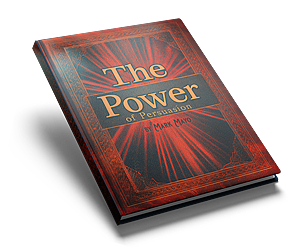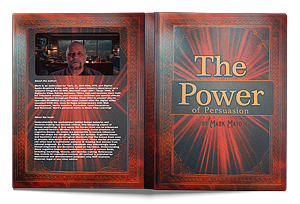Copywriting aims to convince and convert, acting as a compelling call to action, while content writing seeks to inform and build rapport, nurturing relationships over time. Both copywriting and content writing are valuable tools in meeting your marketing objectives, but their potency lies in thoughtful and strategic usage.
The value of written content cannot be overstated. Businesses are increasingly relying on the prowess of wordsmiths to create engaging, compelling, and persuasive content to win over potential customers. It’s within this context that two professions emerge – copywriting and content writing. Despite some confusion, these are not interchangeable roles.
In this comprehensive guide, we aim to put to rest the debate about copywriters vs. content writers. We’ll delve into the individual roles, skill sets, responsibilities, and where each type of writer fits within a marketing strategy. Furthermore, we’ll look at some key differences and similarities to give you a well-rounded perspective. Whether you’re a business owner looking to hire, a professional wanting to hone your skills, or just an enthusiast wanting to learn more about digital marketing, this article is for you.
Table of Contents
- Understanding Copywriting
- Understanding Content Writing
- Key Differences Between Copywriting and Content Writing
- Key Similarities Between Copywriting and Content Writing
- Choosing Between a Copywriter and Content Writer
- Frequently Asked Questions
- Final Thoughts
Understanding Copywriting
Let’s take a closer look at copywriting. Imagine you’re at a marketplace, and you hear a vendor passionately talking about their product. They’re not just listing out features—they’re painting a picture, telling a story, and making you feel like you absolutely need what they’re selling. This, my friend, is the essence of copywriting.
Copywriting is about more than just putting words together—it’s about creating a narrative that appeals to emotions and compels action. When you see an advertisement that makes you laugh, a slogan that you can’t get out of your head, or a product description that makes you want to click “buy now”—that’s the work of a skilled copywriter.
Now, you might be thinking, “Wow, copywriters must really understand people!” And you’d be right! A good copywriter knows how to get inside a customer’s head. They understand their needs, desires, fears, and how to communicate in a way that resonates. They use a combination of psychology, creativity, and a deep understanding of the product or service to craft messages that sell.
Think about it this way—if a product or service were a movie, the copywriter would be the scriptwriter, carefully selecting each line to make the story more engaging, more compelling, and ultimately, more sellable. They’re the ones responsible for turning ordinary text into a persuasive narrative that drives people to take action, be it buying a product, signing up for a service, or even just clicking a link.
It’s a fascinating role, isn’t it? A good copywriter can make a significant difference in a company’s sales and overall success. But remember, like all skills, it takes time and practice to become a proficient copywriter. If you’re interested in the field, it’s never too early to start learning and experimenting!
Understanding Content Writing
Let’s dive into the world of content writing. Imagine you’re scrolling through your favorite website, and you come across an article about a topic you’ve always been curious about. You start reading, and before you know it, you’re engrossed. You’re learning new things, finding out interesting facts, and maybe even laughing at some clever jokes. This engaging and educational material is the work of a content writer.
Content writers are like storytellers or teachers on the internet. They share information and stories about a wide range of topics in a way that’s informative and entertaining. They write blog posts, articles, social media updates, and more. Their goal isn’t necessarily to make you buy something right away, but rather to pique your interest, engage your mind, and make you want to stick around and learn more.
But that’s not all. A good content writer isn’t just informative—they’re also relatable. They understand their audience, and they know how to speak their language. They’re like that favorite teacher you had in school, who could make any topic interesting and understandable. They have a knack for taking complex ideas and breaking them down into bite-sized, digestible pieces.
Think of content writing like hosting a party. The content writer is the host, making sure everyone feels welcome, keeping the conversation flowing, and ensuring everyone has a good time. And if they’ve done their job well, those guests will want to come back for the next party, and maybe even bring their friends!
Just like copywriting, content writing is a skill that takes time and practice to master. But if you enjoy learning, sharing knowledge, and engaging with people, it could be a great fit for you!

Key Differences Between Copywriting and Content Writing
Let’s unravel the key differences between copywriting and content writing! You can think of these two like the different roles in a basketball team.
A copywriter is like the player who makes the buzzer-beating shot—their role is to make a direct impact at the right moment. They’re focused on making the sale or getting the user to take some immediate action. It’s all about the here and now. They persuade the reader to make a purchase, sign up for a newsletter, or click a button. The words they craft are designed to trigger an immediate response, just like that winning shot at the last second.
A content writer, on the other hand, is more like the team player who’s always passing the ball and setting up the plays—they’re playing the long game. Their work is meant to build and engage an audience over time, not necessarily to score right away. Their goal is to inform, entertain, and keep readers coming back for more. They build trust and credibility, just like a team player who steadily assists their teammates.
Another key difference is the style of writing. Copywriting is generally more sales-oriented and uses persuasive language. It’s all about tapping into the reader’s emotions and desires. Content writing, meanwhile, is more educational and conversational. It’s about sharing valuable information and telling engaging stories.
Finally, there’s the structure and format. Copywriting is usually shorter and snappier, with catchy headlines and compelling calls to action. It’s like those quick, powerful passes in basketball that lead to a score. Content writing, on the other hand, can be much longer and more detailed, like a well-thought-out play that involves the entire team.
So, while both copywriting and content writing involve crafting words, they each play a different role in the grand scheme of things. It’s like how a successful basketball team needs both the scorer and the playmaker—they work together to win the game. In the same way, both copywriters and content writers are essential in a comprehensive marketing strategy.
Key Similarities Between Copywriting and Content Writing
While copywriting and content writing can feel like two different worlds, they actually have quite a bit in common. Let’s think of them as two different genres of music: one might be rock, and the other jazz. They sound different, sure, but at their core, they both rely on rhythm, melody, and harmony.
Here’s what copywriting and content writing share:
1. Understanding the Audience: Whether you’re a copywriter trying to persuade someone to buy a product, or a content writer looking to engage readers with an interesting blog post, understanding your audience is key. Both types of writers need to know who they’re talking to and what those people care about. It’s like knowing whether your crowd wants to hear rock or jazz before you start playing!
2. Creativity and Storytelling: Copywriters and content writers are storytellers at heart. They weave narratives, use compelling language, and create vivid imagery with their words. Both must be creative and innovative in their approach to keep their audience engaged and interested.
3. Clear Communication: Both copywriters and content writers need to be experts at getting their message across clearly and concisely. They’re both aiming to communicate something to the reader—whether it’s the benefits of a product or an idea in an article—and they need to do so in a way that’s easy to understand.
4. SEO Knowledge: In the digital world, both copywriters and content writers often need to understand Search Engine Optimization (SEO). This is the practice of making content more visible on search engines like Google. Knowing how to use keywords, how to structure a piece for better readability, and how to use meta descriptions are skills that both copywriters and content writers can benefit from.
So, while copywriting might be a rock concert, getting the crowd hyped up and ready to act, and content writing might be a jazz gig, drawing the audience in with intricate melodies and thought-provoking themes, they both involve a deep understanding of the audience, storytelling, clear communication, and SEO knowledge. They’re different tunes, but they’re both music to our ears!
Choosing Between a Copywriter and Content Writer
Let’s explore how you might choose between a copywriter and a content writer! To get us started, think about it like choosing between two different types of chefs—one who specializes in desserts, like a patissier, and one who’s an expert in main dishes.
A copywriter, like a dessert chef, is someone you’d turn to when you want to create an immediate impact, a “wow” factor. They’re the ones who can whip up irresistible content that compels your audience to act right away—whether it’s to buy a product, sign up for a newsletter, or download an app. If your goal is to drive immediate conversions and motivate your audience to take a specific action, then a copywriter is who you need.
On the other hand, a content writer is more like a chef who specializes in main dishes. They’re in it for the long haul, slowly simmering the ingredients to create a dish that’s satisfying and memorable. Content writers are experts at nurturing a relationship with your audience over time, providing them with valuable information, and keeping them engaged and coming back for more. If your aim is to build a community, foster customer loyalty, or establish your brand as a thought leader in your industry, then a content writer is your best bet.
But here’s the key: just like a successful dinner party might require both a main dish and dessert, your business may benefit from a combination of both copywriting and content writing. The two types of writing serve different purposes but can complement each other wonderfully. A blend of immediate, persuasive copy and long-term, relationship-building content can create a balanced and comprehensive marketing strategy.
So when deciding between a copywriter and a content writer, consider what your current goals are, what your audience responds to, and how you want to position your brand. And remember, there’s always room at the table for both!
Frequently Asked Questions
Final Thoughts
So, if we were to distill everything we’ve discussed into one main takeaway, it would be this:
Copywriting and content writing, while both essential components of effective communication and marketing, serve distinct roles and cater to different objectives.
A copywriter is your go-to professional for crafting persuasive, action-oriented text designed to drive immediate conversions. They’re the ones who make you feel that you must try a product or service right now, like a compelling salesperson who convinces you with their enthusiasm and persuasive pitch.
On the other hand, a content writer excels at creating informative, engaging, and often longer-form content intended to foster relationships, build trust, and maintain audience interest over the long term. They’re like the friendly and knowledgeable guide who takes you on a journey, sharing interesting facts and stories along the way.
Understanding these key differences is essential when deciding which type of writer (or possibly both!) you need based on your specific business goals. If you’re looking to drive immediate actions like sales or sign-ups, a copywriter is your best bet. If your aim is to create an engaged audience and build long-term brand loyalty, then a content writer is what you need.
Remember, a balanced marketing strategy often involves both captivating copy and compelling content, working harmoniously to captivate, convince, and convert your audience. Just like a great meal needs both a main dish and a dessert, your business can benefit from the unique skills and talents of both copywriters and content writers.











Leave A Comment